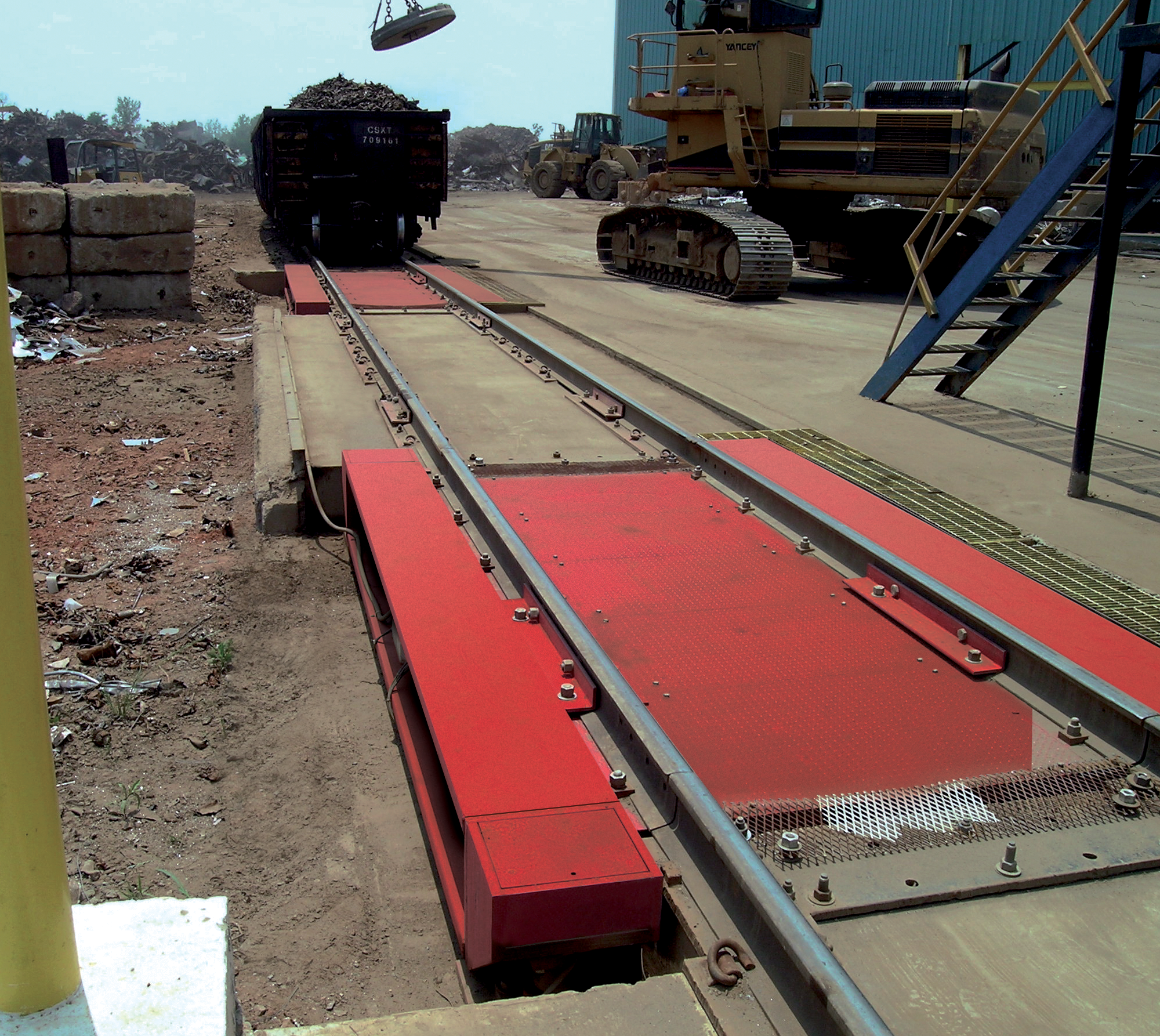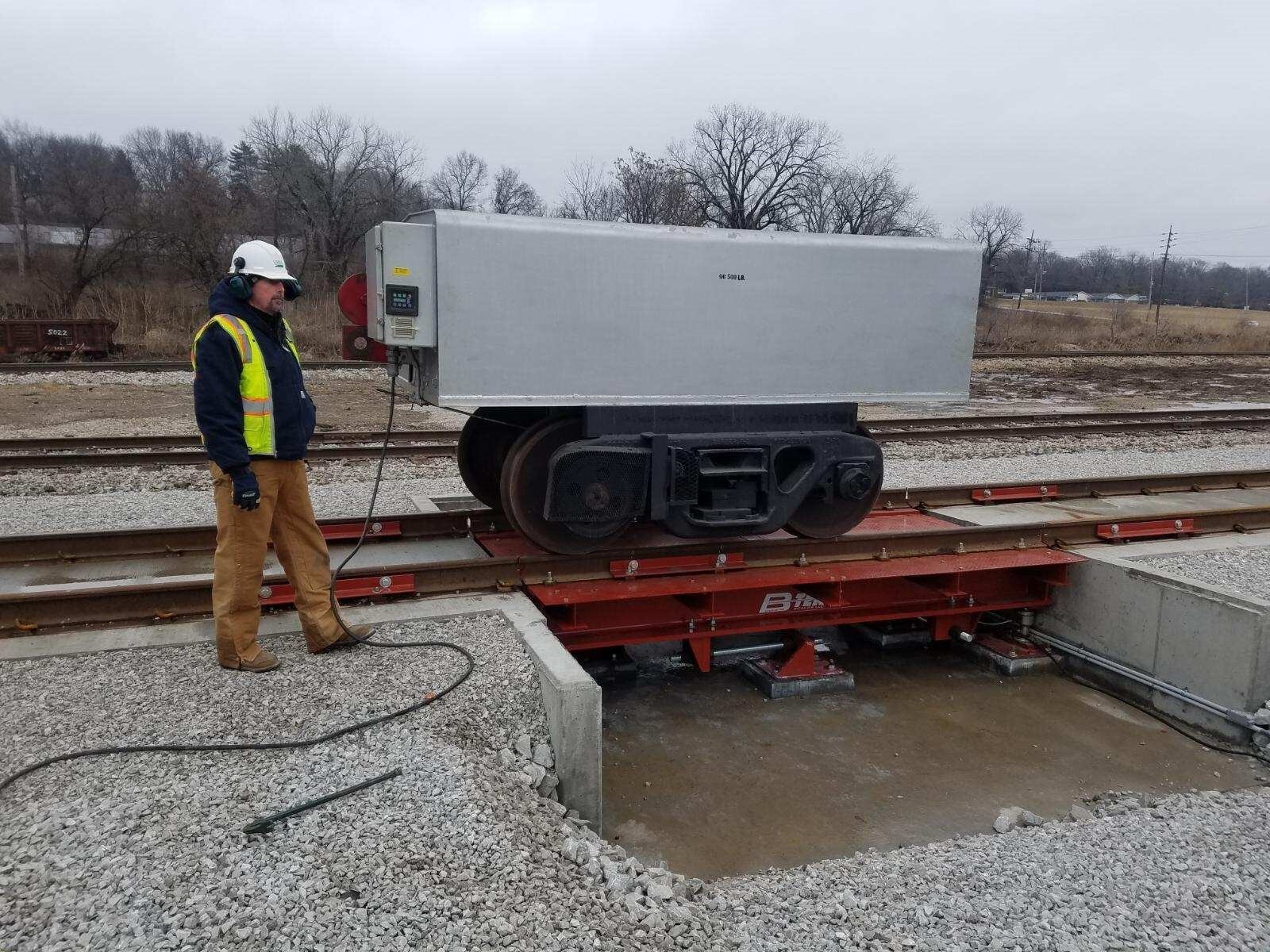Legal for trade rail scale – pricing guidelines
One of the first questions potential rail scale owners often want to know when they call our company is: How much does a rail scale cost? This is a difficult question to answer because it depends on a variety of decisions you will need to make. This article will attempt to layout general pricing guidelines associated with a legal for trade rail scale.
All legal for trade rail scale projects generally follow the same process and there are costs associated with each step. The basic steps in the process include:
• Conduct an initial site survey
• Obtain a geotechnical report
• Choose your scale
• Plan the project
• Complete the project, calibrate, and place into service
The first step in the process includes doing an on-site survey to assess the feasibility and optimal location for the rail scale. During the site survey you will identify the best location for the scale and the scale house, locate underground utilities, assess drainage, etc.
After the initial site survey, the second step is to hire a geotechnical engineer to conduct a thorough analysis of the proposed construction site. The analysis includes soil borings, lab tests, and composition studies to confirm the type of soil present and determine what is required to reach required compaction levels. Depending on the soil, a deep foundation with pilings may be recommended to transfer loads to the earth farther down from the surface. Site work is one of the largest variable costs associated with legal for trade rail scales. Depending on soil conditions and the type of scale foundation, site work can range from $10,000+ to well over $100,000 for substantial earth work.
The third step is to determine the exact type of rail scale to purchase; the initial site survey, the geotechnical report, and on-site weighing considerations will help to pinpoint this. Legal for trade rail scale options include:
• above ground vs pit scale foundation
• modular platform sizes (single, single-single, single-double, double-double)
• truck/rail combo
• hydraulic vs. electronic load cell system
• static vs. weigh in motion weighing
There are a couple of different foundation types for legal for trade rail scales. The primary two types are either above ground or conventional pit style. A conventional pit scale generally requires more site work and concrete finishing. The approaches, immediately adjacent to the scale, range from 25’ to 75’ in length and are a significant part of the foundation. Site selection and the rail scale application generally determine what type of foundation to get. Depending on the foundation, the concrete work can range from $50,000 to over $100,000.
Modular platforms vary in size. Platform lengths range in length from 12 foot, 15 foot, 20 foot, 25 foot, etc. The modules are configured to weigh cars that vary in length. The rail scale owner must determine the expected length of the rail cars that he/she will be weighing and the foundation will be designed with the appropriate amount of dead space between two rail axles. The scale is usually classified as a single (one module; split weighing), single-single, single-double, double-double (preceding three - two module; scale weighs whole car). The number of modules and size have an impact on the price.
Another option is to weigh the whole rail car on a single platform. This system can be installed for rail only operations, or it can be used to measure vehicle traffic as well. Truck/rail combo rail scales vary in length from 60’ to over 100’ feet long. These scales can be either concrete or steel deck. Grated dump through decking is also available for unloading operations.
The scale environment will also impact the type of load cell system. Both electronic and hydraulic load cells have certain advantages and disadvantages. When used in the right environment, both types are reliable, repeatable, and accurate.
Lastly, you will need to decide whether the scale needs to weigh static or in motion cars. This decision will have a significant impact on the foundation, the rail equipment, and the instrumentation. Static weighing involves moving the rail car onto the scale and weighing the car at rest. Rail cars are weighed uncoupled from adjacent cars. Weighing in motion allows you to eliminate the costs and hazards of uncoupling and positioning each car on the rail scale. A weigh in motion scale allows railcars to be weighed as they roll over the scale. With a properly located scale, car weights can be made as part of your normal car handling operations without any additional time or effort. Coupled in-motion rail scales allow scale owners to obtain safe and accurate weighments of an entire train at speeds ranging from 3-14 mph.
Depending on the type of rail scale system you choose, equipment prices can range from >$50,000 to well over $150,000. At the end of the day, the main costs associated with a legal for trade rail scale include site work, the foundation, and the scale equipment.




